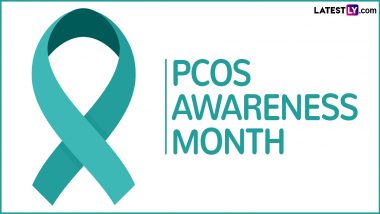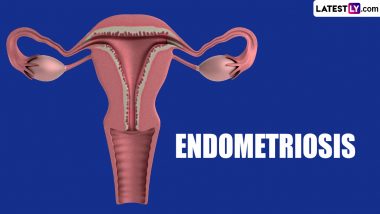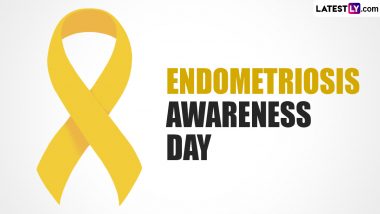Did you know that an estimated 176 million women all over the world and around 25 million in India suffer from a painful menstrual condition called endometriosis? The most telling feature of the condition is the unbearable pain it causes its sufferer during menses. Despite being so widespread, endometriosis is not a very well-known medical condition, unlike cancer or AIDS. And very few people outside the medical fraternity know about it. Those who do are either suffering from it themselves or know someone who does. The month of March is observed every year as Endometriosis Awareness Month, to focus attention towards this silent epidemic that is impacting the quality of female lives worldwide.
The effects of endometriosis are far-reaching and go beyond just a few days of menstrual inconvenience. Here are some things only women with endometriosis know.
People think you are making a big deal out of period pain
Menstrual cramps can be painful sometimes. But they don't land you in the emergency room. The pain associated with endometriosis can be so bad that women have to be rushed to the hospital sometimes. It's a stabbing, spasmodic pain that is constantly shooting from inside your lower abdomen. Unlike period cramps, endometriosis pain is not relieved by painkillers. People often downplay women's suffering thinking they are just making a big deal out simple cramps.
Tight clothes are not your thing
When you have endometriosis, the lower abdomen looks swollen and distended. The condition is known as the endo belly, which goes hand in hand with the condition. Sadly, it's one of the most overlooked symptoms of the condition and is often misdiagnosed as a minor gastric problem. This bloated appearance can be quite unsightly when you wear tight dresses. It's not uncommon for women with endo to completely forgo fitting clothes.
Aches and pains are a regular thing
According to National Institutes of Health (NIH), one of the associated conditions of endometriosis is fibromyalgia, a condition that causes chronic, inflammatory pain. Women with the condition often report feeling pain around the neck, shoulders, hips and joints. Associated problems of fibromyalgia include brain fog, sleep problems, painful periods, etc.
Tired and fatigued all the time
Women with endometriosis find themselves drained all the time. You start wondering whether you are really tired or just plain lazy. The truth is being on the low energy mode is not an unfortunate coincidence when you have endo. Chronic fatigue syndrome is another one of those conditions commonly seen in women with endometriosis.
No two menstrual cycles feel the same
Some cycles may go smoothly, others may drag you to hell and back. Some may be pain-free and others may be fraught with nerve-twisting. With endometriosis, there's no way to predict the course of the pain.
You may have to come to term with your infertility
Although endometriosis does not equal infertility and most women do eventually get pregnant, endo sufferers find it more difficult to conceive than the others. According to endometriosis.org, 60-70 percent of women are believed to be fertile. But for some, conception is an uphill battle they are doomed to face.
Your relationships suffer
One of the casualties of endometriosis is your conjugal relationships. Women suffering from endometriosis often find sex painful. This could cause intimacy issues between couples. Supportive spouses understand their partners' genuine disinterest in sex, but more often than not, endometriosis can cause a strain even between loving couples.
You feel blue too often
Mental health issues are not uncommon among women with endometriosis. There is a positive correlation between the two. Research says that sufferers have a higher risk of developing anxiety, depression and other psychological ailments. The pain and the other physical discomforts women have to face only adds to the mental distress.
There's a looming fear of hysterectomy
Many doctors suggest hysterectomy as a treatment option for severe endometriosis. There's no cure for this condition. Hormonal treatments where gynecs put patients through synthetic hormonal drugs are just a way of managing the disease; it only helps to minimise the symptoms. When the pain starts getting more unmanageable, gynaecologists often suggest surgically removing the uterus. However, that doesn't necessarily cure the condition.
Despite these problems, women living with this debilitating condition are expected to soldier on with their lives and not complain. Even if they did, their symptoms are made light of, even by healthcare providers.
(The above story first appeared on LatestLY on Mar 27, 2018 09:10 PM IST. For more news and updates on politics, world, sports, entertainment and lifestyle, log on to our website latestly.com).













 Quickly
Quickly





















